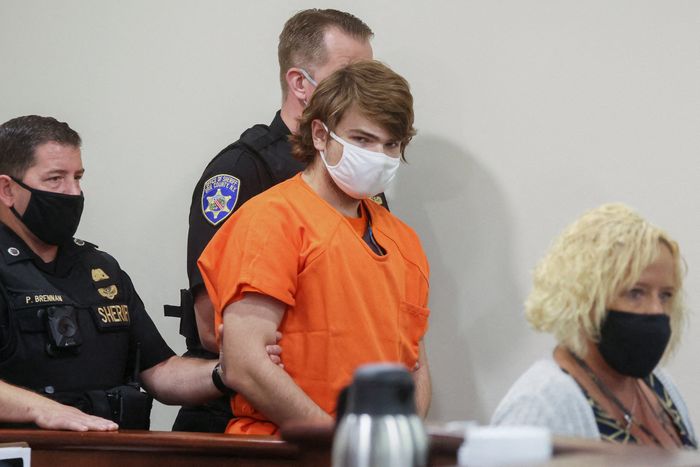The United States Department of Justice (DOJ) is seeking the death penalty for Payton Gendron, the Buffalo supermarket shooter and an avowed white supremacist.
In 2022, Gendron murdered 10 in a racist attack on a Tops Friendly Market in Buffalo, later pleading guilty to charges of murder, attempted murder and hate-motivated domestic terrorism. Last February, he was sentenced to life in prison without the possibility of parole in a state court.
While capital punishment is not legal in New York, the DOJ is now pursuing separate federal hate crime charges against Gendron. If found guilty, Gendron could be sentenced to death.
The court filing declaring intent to pursue capital punishment cited the planning behind the shooting. Originally from Conklin, New York — just under 20 minutes away from Binghamton University — Gendron was enrolled at SUNY Broome before the shooting. He traveled 200 miles to the predominantly Black East Side neighborhood in Buffalo to carry out the attack. Gendron chose this location specifically to “maximize the number of Black victims,” according to Trini Ross, the United States attorney for the Western District of New York.
Prosecutors also cited the racism behind the shooting as justification for the death penalty. Gendron’s weapon was reportedly marked with racial slurs and references to the “Great Replacement,” a racist and antisemitic conspiracy theory alleging a plot to eliminate white people. He also streamed the shooting on Twitch, a live-streaming service.
Before the shooting, Gendron posted material promoting racist ideologies and white supremacy online, including a 180-page document that included the names of other mass shooters he admired. According to Erie County District Attorney John Flynn, another document found during the investigation showed his intent to target African Americans.
“The document also detailed the defendant’s hateful beliefs, specifically his hatred for African Americans, Jewish people, immigrants and other minorities,” Flynn said.
Gendron’s defense team expressed disapproval in response to the DOJ’s filing in a statement. They noted that Gendron was 18 when he committed the crime and that he is already serving a life sentence with no opportunity of parole.
“Rather than a prolonged and traumatic capital prosecution, the efforts of the federal government would be better spent on combatting the forces that facilitated this terrible crime, including easy access to deadly weapons and the failure of social media companies to moderate the hateful rhetoric and images that circulate online,” Gendron’s defense team said in the statement.
The DOJ’s decision marks the third attempt to pursue the death penalty during President Joe Biden’s administration, which is generally opposed to the death penalty despite the lack of an official policy. Following a 2021 moratorium — or symbolic suspension — issued by Attorney General Merrick Garland, two other death penalty cases have been pursued with only one resulting in a successful prosecution.
Family members of the victims were informed of the DOJ’s decision before the filing was officially made. While some agreed with the decision, others, like Mark Talley, the son of victim Geraldine Talley, did not.
“As far as I’m concerned, I think he’s getting off the hook getting the death penalty because he won’t get that suffering that I want,” Talley said. “As long as I’m alive, whether God gives me 20, 30 or 60 years, I [want to] be able to see him suffer.”
Madelyn Payano, a sophomore majoring in philosophy, politics and law, said that students should familiarize themselves with the case.
“Though I think it’s a difficult and delicate case to discuss, I would argue that everyone must take responsibility for their actions and that doing the wrong thing will always have consequences,” Payano wrote. “Students at [BU] should be concerned about this, since it’s important for all of them to know about the current global events and for the majority of them to strive to become better informed about hate.”



